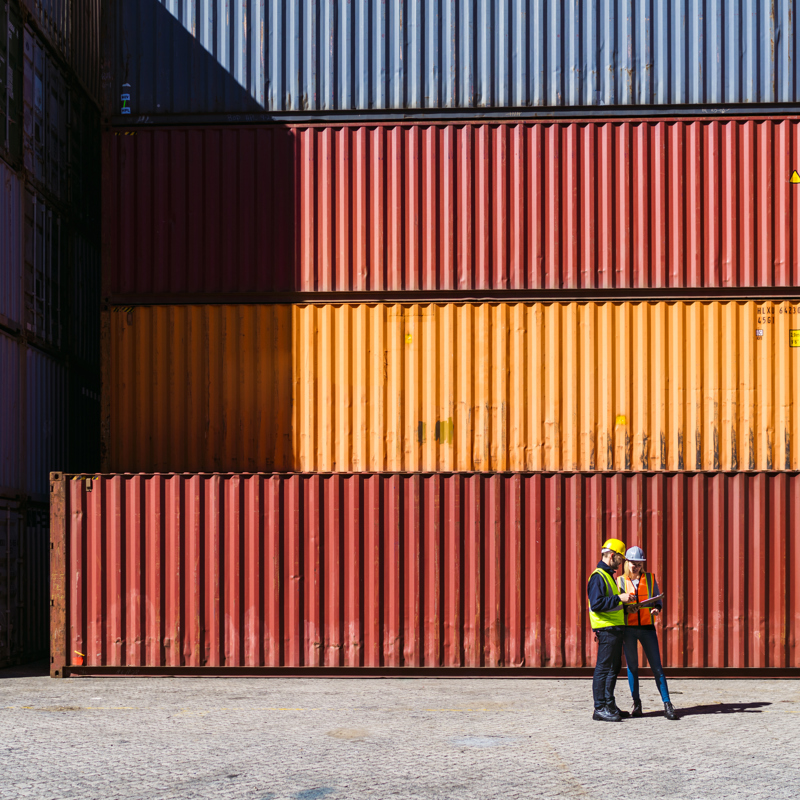
- Blog
How supply chains are re-defining resilience through smarter network design
A recap of the Roland Berger × Infios webinar on building...

Businesses face more global trade challenges than ever as the world economy slows and geopolitical tensions rise. Understandably, survival often takes priority over customs compliance, international regulations and paperwork.
But the reality is, customs compliance isn’t something you can afford to ignore.
So, where can organizations turn for help?
Two powerful allies: customs brokers and customs compliance technology.
Customs brokers are more than just intermediaries; they're key players who keep the wheels of global trade turning. Whether deciphering tariff codes or accelerating customs clearance, these professionals ensure your shipments move across borders efficiently and legally.
Whether you're a seasoned broker looking to streamline operations or a self-filing importer trying to avoid costly errors, this guide offers insights and tools to boost your customs compliance strategy.
If you've ever struggled to get a package through customs, imagine that on a much larger scale. For businesses managing high volumes of imports and exports, customs brokers are indispensable partners who simplify the process so you can focus on your core operations.
A significant part of a customs broker's daily work involves precise classification of goods under international trade laws, known as the Harmonized System (HS) codes. It's like solving a complex puzzle where every piece or product needs the correct label. Mistakes lead to delays or unexpected fees.
The work doesn't stop there.
Global trade management involves managing an avalanche of documents - invoices, bills of lading, certificates of origin and more.
Customs brokers handle this documentation, ensuring everything is accurate and submitted on time. They're also the experts at determining goods' value (essential for calculating duties) and handling all duties and taxes correctly and promptly.
Without a customs broker, organizations easily overlook complex customs rules.
Brokers track every regulation change and provide regular updates to help avoid costly mistakes and penalties. They ensure all paperwork is flawless, helping goods move through customs faster.
Customs brokers take a proactive approach.
They don't wait for issues to arise; instead, they keep clients updated on new laws and help them adapt accordingly. This preparation ensures businesses remain ready for whatever regulatory changes may come.
How do customs brokers navigate the high-pressure world of international trade?
They rely on customs compliance software and data analytics platforms to cut through red tape and streamline processes.
Trade Compliance Software functions like a smart, reliable assistant that keeps everything related to international trade and customs compliance in check. It prevents getting bogged down in complex rules and regulations, allowing focus on business growth. Both customs brokers and businesses benefit from keeping operations smooth and penalty-free across different countries.
Benefits include:
Whether you’re a broker or an importer managing your own compliance, this software minimizes risk while freeing up time for strategic priorities.
Data analytics platforms serve as the Swiss Army knife for customs brokers, cutting through international trade complexity with deep intelligence.
These platforms transform daily operations by automating mundane tasks like data entry. This not only saves time but reduces human error, allowing brokers to focus on more critical aspects of their jobs.
They gain access to valuable supply chain insights and maintain transparency throughout the import lifecycle.
But their benefits extend beyond streamlined operations.
Top advantages include:
With the power of data, customs brokers can make better decisions, faster and with far fewer surprises.
Customs compliance doesn’t have to be overwhelming. With a proactive approach, you can avoid costly setbacks and ensure a smoother import process.
Here's how to strengthen your customs process:
